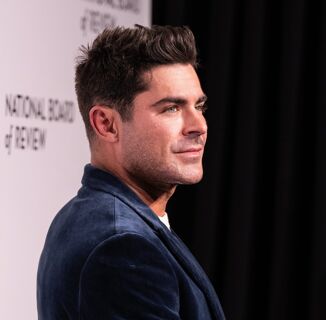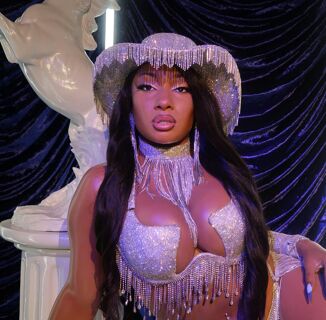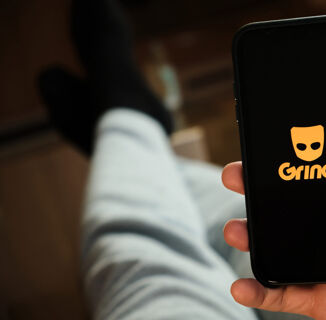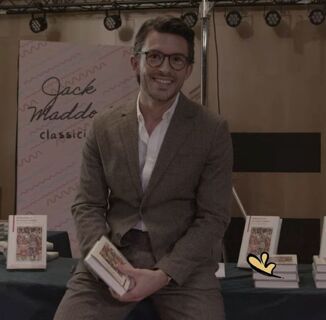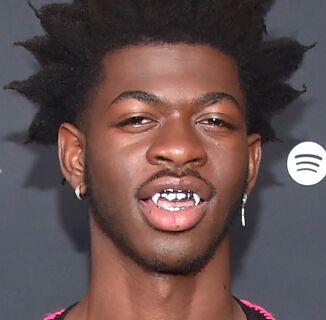As cliche as it is, the first lesbian I ever saw was Ellen DeGeneres.
But as a kid in South Africa, I didn’t have the language for what she was — I only knew the word “gay.” I knew so little about what it meant that she dressed as she did, and she had short hair, and that those things had little to do with who she chose to love. I just understood that she wasn’t the norm.
I don’t remember learning the word lesbian, but because of how ugly I found it for so many years, I know it was probably in a bigoted context. There are so many layers as to why it took me a long time to make that word fit my body and why I jumped through so many loopholes to try to avoid it. I think a lot of lesbians do, because a world that intrinsically values male prowess over most things is bound to demonize an identity that by definition excludes men.
The word “lesbian” originated from the name of the Greek Island Lesbos, where poet Sappho lived amongst mostly women. It doesn’t take reading a lot of her work to know she’s writing about romantic and sexual relationships with women. Even when there are no clear pronouns to the lovers she writes for, the sheer drama of Sappho screams dyke.
Although our history goes all the way back to ancient Greece, records of lesbians existing in the world are almost nonexistent. Our relationships were never considered legitimate enough to be salvaged. Thousands of years worth of letters, art, even Sappho’s poetry, have been completely erased. Our identities are relegated to trends and undermined and fetishized. It still happens today with lesbian characters in film and television routinely dying. When they stay alive they are overly sexualized, ending up with men or suffering other unspeakable tragedies.
As a young lesbian, seeing all of this doesn’t make you readily accept that that’s who you are. You instead become the antagonist of your own life, vilified by every aspect of your own being. If the thing you are is the reason you hate yourself, you create a prison inside yourself that ultimately becomes a paradoxical nightmare of a labyrinth to escape.
The solution to this internal conundrum for my baby dyke self was to exist in ambiguity. While it is true that for some people sexuality is fluid, and identifying as queer is completely valid, I hid behind that word for a long time to prevent myself from falling down the lesbian spiral of self-hatred that the world sold to me as tolerance. I hid behind the ambiguity in the hopes that it would become true that I could potentially fall in love with a man. That way I wouldn’t even have to come out to my friends and my family and my queerness would be a secret I wouldn’t mind keeping to myself. And as I met more lesbians I started moving away from that thought process but not entirely.
Being outed wasn’t exactly helpful in all of this internal chaos. I felt completely robbed of my agency and defeated in my own journey to self-understanding and acceptance. When it happened I was still not completely okay with the word lesbian. It sounded so uncomfortable in my voice. It’s not the prettiest word. It’s not a word you get accustomed to easily.
But it grows on you. It wasn’t organic for me, and certainly not without relentless internal contention, but now when I call myself a lesbian, it sounds more than right. It sounds whole and all-encompassing. It sounds like I’ve had to shed so many preconceived notions of who I was and who a lesbian was. It sounds like I had to bridge a seemingly impossible gap between those two things. And that reconciliation was holy. I felt reborn into the version of myself I was so sure existed somewhere. I’m so thankful that I didn’t give up looking for that version of myself. I’m thankful that I didn’t settle for someone I wasn’t okay being.
Telling lesbians that they might end up with a man because sexuality is fluid is akin to homophobic parents hoping for the same outcome. It doesn’t really hear what it means to be a lesbian. It’s dismissive and it invalidates this journey. It robs us of our stories and how we go through this impossible feat of self-love.
Coming out is extremely hard no matter what the people closest to you think. The society we live in so consistently force feeds us this cis heteronormative version of happiness and family and forever, it’s impossible to escape. It’s impossible not to internalize that consistent homophobia. As a lesbian, that internalization is twofold because of the misogyny both in the world and the queer community.
The journey to lesbian to dyke to sapphic, the journey to wearing a concrete and unwavering identity, is hard. No one can help you through it or accurately warn you about how arduous it is, but once you reach the end it feels like a unique kind of liberation. The kind that rushes through every part of your body, that makes you leap out of bed in the morning and walk on air, with every dissent about your being just bouncing off your skin because you know something they don’t. You know who you are and the rest of the world has nothing to do with it.
Image via Getty
Help make sure LGBTQ+ stories are being told...
We can't rely on mainstream media to tell our stories. That's why we don't lock our articles behind a paywall. Will you support our mission with a contribution today?
Cancel anytime · Proudly LGBTQ+ owned and operated
Read More in Culture
The Latest on INTO
Subscribe to get a twice-weekly dose of queer news, updates, and insights from the INTO team.
in Your Inbox






